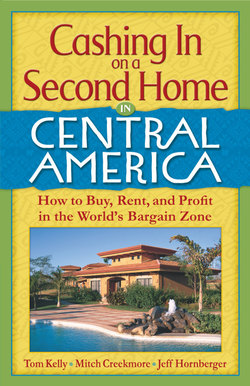Читать книгу Cashing In On a Second Home in Central America: How to Buy, Rent and Profit in the World's Bargain Zone - Tom Hammond Kelly - Страница 13
На сайте Литреса книга снята с продажи.
Drilling deeper to understand migration
ОглавлениеAccording to America’s Emigrants—U.S. Retirement Migration to Mexico and Panama, a 2006 study conducted by Washington, D.C.-based Migration Policy Institute (MPI), an independent, nonpartisan, nonprofit think tank dedicated to the study of the movement of people worldwide, the size of the U.S.-born senior population (those aged 55 or older) grew 136 percent in Panama between 1990 and 2000. At sites in Panama, real estate agents, developers, attorneys and insurance brokers pointed out repeatedly that this growth had continued locally in the post 2000 years, reaching what one called a “frenzy” in this country. Visa statistics from Panama, likely to capture only a subset of people who live there part-time or year-round, showed that the number of U.S. citizens obtaining pensioner visas more than tripled between 2003 and 2005.
A few key components of the MPI study are helpful in understanding the deeper motivations behind Panama’s popularity and the bigger picture of Americans’ interest in other countries.
Four significant trends were described in the subsection, “Why Is Retirement Abroad Important?” First and foremost, the large baby boom generation is on the cusp of retirement, meaning that the retirement-age U.S. population will grow at unprecedented rates, and its proportion to the economically active population will rise dramatically. As this demographic shift occurs, the retiree “market share” will grow. Business and government interest in this segment of the population will intensify in the US and abroad.
Second, the skyrocketing cost of medical and nursing care paired with increasing life expectancies have led to growing doubts that Medicare, Social Security, and private retirement plans will be sufficient for a decent retirement living for all but the most fortunate of retirees. According to a recent Gallup poll, 40 percent of U.S. residents are somewhat or very worried about not having enough money during retirement. These doubts have already begun to push some retirees to “shop around” for a more affordable spot to retire. Some of the retirees interviewed in the MPI study mentioned that covering their medical expenses in the United States or sustaining a comfortable lifestyle in the United States with only their retirement benefits and savings was not feasible, and they found moving abroad to be a solution to their economic quandaries.
Third, advances in communications technology and cheap direct transportation have lowered the social and economic costs of living abroad and have paved the way for retirees to look to other countries as alternatives. A lower cost of living in another country allows retirees to enjoy amenities that would be nearly impossible to afford in the United States, while communications technology and increasingly efficient air travel allow them to stay in touch with family and friends in the United States.
Finally, international retirement migration streams can affect the economies and communities of favored retirement destinations, sometimes profoundly so. Retirement abroad, much like tourism, can be a powerful form of direct foreign investment and thus contribute to development efforts in other countries. Retirees buy or rent homes. They provide employment for local workers, consume goods and services, and may attract greater investment and more foreign visitors to retirement areas.
While research on the economic impacts of U.S. retirees in Latin America remains quite sparse, research on interstate migration in the United States has found that such migratory streams play a large role in redistributing wealth among states. At the same time, some evidence suggests that retiree flows tend to inflate housing prices, which can push some native residents out of areas in which foreign retirees settle, the MPI study revealed.
